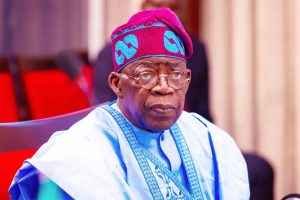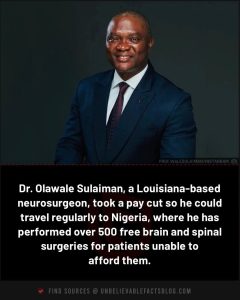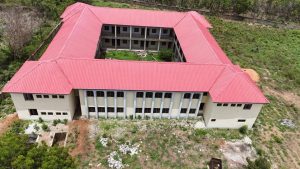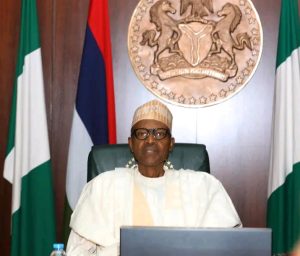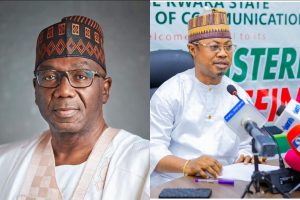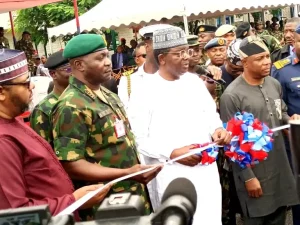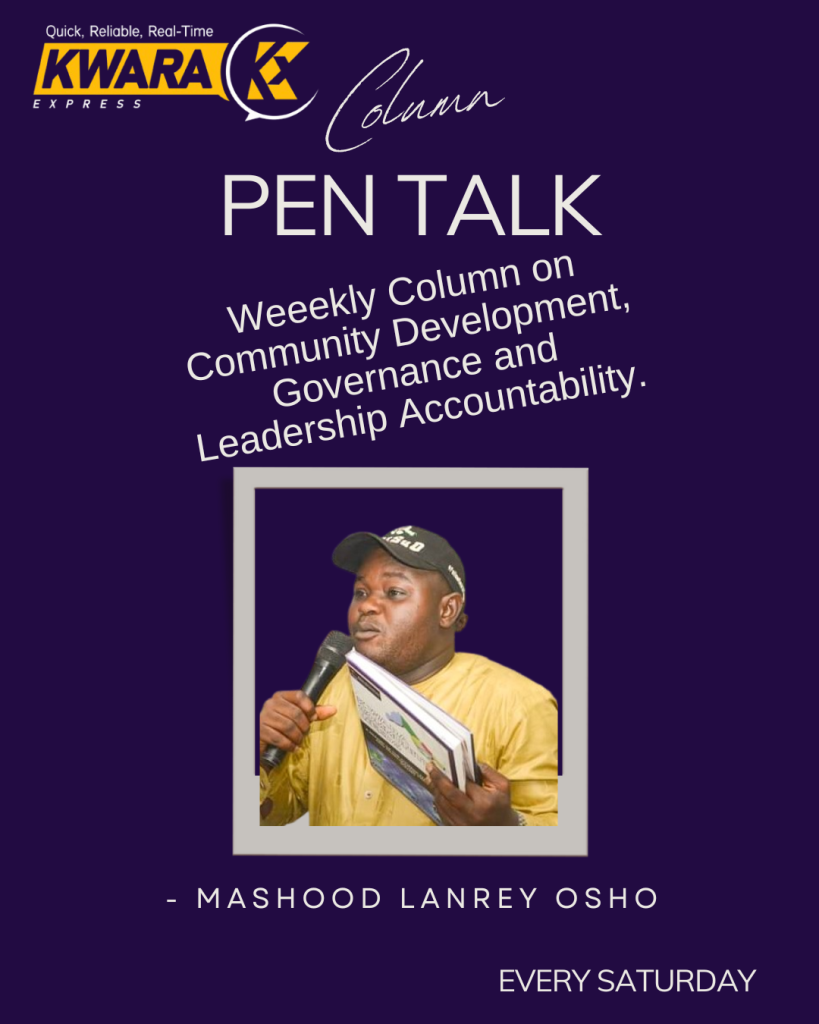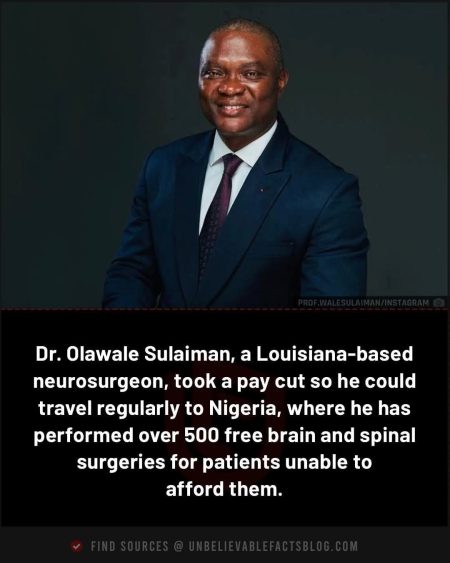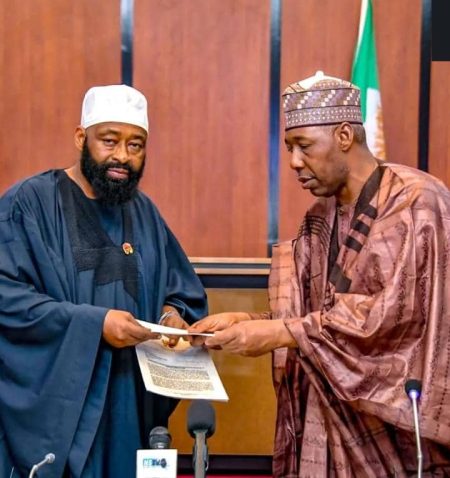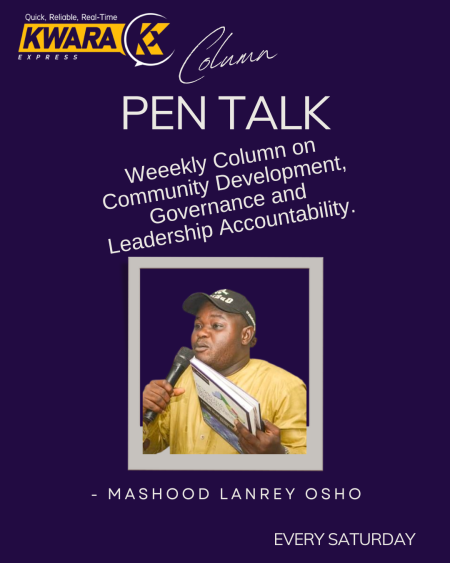Fellow Kwarans, I know this week’s column will resonate strongly with many, possibly stirring up controversy among government loyalists. However, I’m compelled to speak truth to power. The harsh reality is that the current economic hardships, frustration, uncertainty, and stress we’re experiencing in Nigeria and and Kwara State stem from a lack of effective economic policies to transform our lives.
Ilu-le is a Yoruba phrase that resonates deeply with many Nigerians, expressing the sentiment that the country is facing hard times. This phrase has become a rallying cry, a way to acknowledge the struggles and hardships that many face in Nigeria.
In fact, “Ilu-le” was popularized by Yoruba poet Lanrewaju Adepọju, Late Sikiru Ayinde Barrister and king Wasiu Ayinde in the 1980s and 1994 poem and music where they lamented the economic crisis and corruption that plagued Nigeria during the transition from military rule to civilian government. The poem and music vividly captures the frustration and despair of the people, with lines like Hard times! Hard times! As if by a deluge of evil, Everyone is in trouble and The yam flour measure once sold for one Naira, Now sells for six!
Fast-forward to today, and it’s clear that the phrase “Ilu-le” remains relevant. Many Nigerians continue to face economic hardships, and the phrase has become a way to express solidarity and shared experience.When a president lacks a sound economic vision or introduces harmful policies, citizens bear the brunt. Similarly, when governors fail to implement policies that lift people out of poverty, more individuals are pushed into abject poverty precisely what we’re witnessing today.
The recent fuel subsidy removal by President Bola Ahmed Tinubu has pushed many Nigerians to the brink of poverty. If not reversed, it will only add to the alarming statistics. Despite widespread discontent and suffering, the government seems unwilling to change course, leading many to question whether those in power truly serve the people’s interests.As we navigate these challenging times, it’s crucial to hold our leaders accountable for their actions and demand policies that promote prosperity and well-being for all.
Before diving into the root causes of hardship in Nigeria and Kwara State, let’s take a step back and reflect on our past. Nigeria’s current struggles aren’t new, we’ve experienced ups and downs under various governments, but our present situation is unprecedented. The core issue plaguing Nigeria is a lack of sincerity, transparency, and accountability, coupled with selfishness among government officials, which has led us to this point.
Historically, Nigeria has faced similar challenges. During General Ibrahim Babangida’s military regime, the country struggled with economic hardship, and Babangida’s administration borrowed heavily from the World Bank and IMF . This period was marked by austerity measures, currency devaluation, and rising poverty.
Similarly, General Yakubu Gowon’s regime, which came to power after a counter-coup in 1966, was characterized by a centralized administration and a top-down approach to governance . Although Gowon’s regime initiated a transition program to return Nigeria to civilian rule, it was eventually overthrown in 1975.
Fast-forward to today, and it’s clear that Nigeria’s problems persist. The recent fuel subsidy removal by President Bola Ahmed Tinubu has pushed many Nigerians to the brink of poverty. Despite widespread discontent and suffering, the government seems unwilling to change course, leading many to question whether those in power truly serve the people’s interests.As we navigate these challenging times, it’s crucial to hold our leaders accountable for their actions and demand policies that promote prosperity and well-being for all.
President Bola Ahmed Tinubu inherited a Nigeria with economic and security challenges, but his ties to the previous Buhari administration make it hard for him to distance himself from those issues. The former CBN governor, Emefiele, also bears responsibility for the economic struggles. Despite increased allocations to 36 states and 774 LGAs since 2023, citizens haven’t seen improvements. This led President Tinubu to take state governments to court. Financial autonomy for local governments is a positive step, but it’s not enough. Anti-corruption agencies must ensure public funds aren’t misused and hold accountable any local government that fails to deliver. At the state level, increased allocations are often spent on projects that don’t address people’s needs or alleviate poverty.
For instance, some governors prioritize projects like airport construction in states without supporting industries or renovating government houses and state-owned hotels with billions of Naira. These actions neglect pressing issues like insecurity, unemployment, and poverty. It’s clear that many governors aren’t serving the people’s interests.thus, Some governors prioritize misguided projects, like airport construction without supporting industries, which fails to attract business and wastes taxpayer money. Must they copy others without considering unique state needs?
Another governor spent billions renovating government houses in a state plagued by insecurity, erosion, and internal displacement. Meanwhile, many communities lack basic amenities, poverty rates soar above 45%, and retired civil servants since 2015 await gratuities.
These actions ignore pressing issues, showing disregard for citizens’ interests. It’s time for citizens to demand transparency and accountability. We must wake up, hold governments accountable, and promote inclusiveness. Politicians won’t serve us unless we ensure they do.Governors should prioritize people’s needs over prestige projects. Citizens must advocate for change, as relying on divine intervention won’t solve our problems. We must take action to ensure leaders serve the people, not themselves.
Kwara State’s Governor AbdulRahman AbdulRazaq’s urban renewal efforts have transformed Ilorin into a vibrant city, but concerns linger about transparency in project execution. The government’s spending on projects like the International Conference Center, KWIRS Building, Ilorin Visual Act, renovation of Kwara Hotel, Renovation of Ahmad bello road and Kwara State Government House raises questions about their necessity and alignment with citizens needs.
While the governor’s pragmatic approach to governance has earned him widespread support, it’s crucial to address the lack of transparency and prioritize human capital development over white elephant projects. The state’s alarming statistics, including a poverty rate higher than ever since 1999, unemployment, and MSME business decline, underscore the need for reassessment.
The Ahmadu Bello way projects alone have cost almost 100 billion Naira, sparking debates about the government’s spending. Citizens are struggling to feed their families, and many have sold their cars. It’s high time to change policies and prioritize citizens needs.Key concerns are lack of transparency in project execution and fund allocation Questionable Projects that don’t serve the people’s needs,Alarming Statistics poverty rate in the state,unemployment, and MSME business decline.And Need for Human Capital Development over white elephant projects
The government must increase transparency, engage citizens through public hearings, and prioritize essential infrastructure and human capital development. By doing so, Kwara State can ensure that development projects genuinely benefit its people, aligning with their needs and aspirations.
The current state of affairs in Nigeria is unacceptable, and it’s clear that the federal and state governments have the resources to make a positive impact but are hindered by poor policy decisions and misplaced priorities. If this situation isn’t addressed head-on, it will only worsen and likely influence the outcome of the 2027 election, as people are fed up and ready for change.
Bad governance has led to unnecessary suffering, and citizens are paying the price. The solution lies in revitalizing the agricultural sector by providing an enabling environment for farmers to thrive and boost food production. This approach would yield better results than investing in white elephant projects.
Instead of spending money on unnecessary projects, the government should focus on security, which is essential for economic growth. Once security is adequate, things will fall into place without wasting taxpayers’ money. Additionally, supporting MSME businesses with adequate funds would contribute significantly to the state’s economy, drastically changing people’s lives for the better.
Effective governance is not rocket science, it requires fixing the economy with sound policies and ensuring security. By doing so, people’s lives will improve dramatically. The government must prioritize transparency, accountability, and citizen engagement to truly serve the people’s interests.
The writing is on the wall, Nigerians demand change, and it’s time for the government to take concrete steps toward meaningful reform. By addressing these critical areas, we can create a brighter future for all. Nigeria’s local government system, established to bring governance closer to the people, needs reform to address challenges like funding, functions, and powers . The current system, with 774 Local Government Areas across the states, operates under a revenue-sharing system where the federal government allocates funds, but local governments don’t have direct access to these funds.
To move forward, Nigeria needs to rethink its governance structure, prioritize agricultural development, security, and MSME support, and ensure transparency and accountability. Only then can we hope for a better future.
God bless Nigeria.


